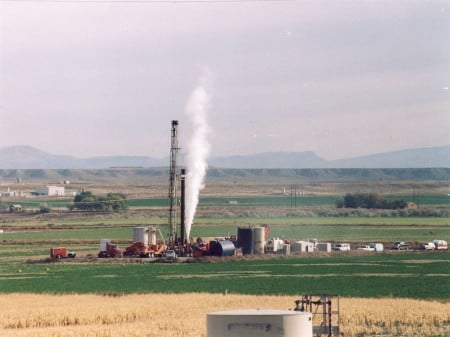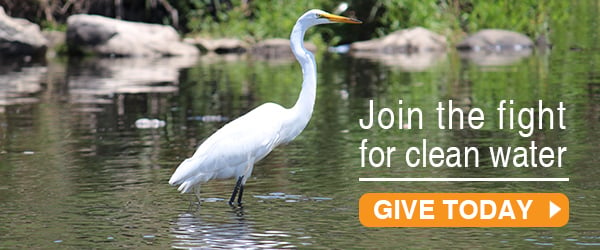Industrial Gas Drilling: A New Year to Take Action

Photo Courtesy: www.powderriverbasin.org
View more images on our Flickr site
In late December, Riverkeeper submitted detailed comments on DEC’s Draft Supplemental Generic Environmental Impact Study (DSGEIS) on gas drilling using high-volume hydraulic fracturing, which demonstrate that the DSGEIS is deeply flawed and must be withdrawn. The following are highlights of our principal concerns:
- Failure to adequately analyze and address the potential establishment of exclusionary zones and permanent protection measures for critically important environmental areas
- Failure to adequately analyze and address cumulative impacts to the State’s air and water resources that would result from the processes used in horizontal drilling and high-volume hydraulic fracturing operations statewide
- Failure to adequately analyze and address the economic costs associated with environmental contamination from shale gas development and industrial gas drilling
- Failure to adequately analyze and address the economic value and benefits of intact forest and wetland ecosystems
- Failure to consider the findings and conclusions of state regulators from states that have experience with horizontal drilling and high-volume hydraulic fracturing that demonstrate clear examples of drinking water contamination from this process, in direct contradiction to the statements in the DSGEIS
- Failure to adequately analyze and address whether the State has the financial and personnel resources necessary to adequately permit, monitor and inspect all aspects of horizontal drilling and high-volume hydraulic fracturing operations and to enforce state regulations and permit conditions in the event of environmental contamination
- Failure to propose any new regulations to govern the proposed increase in horizontal drilling and high-volume hydraulic fracturing, and instead propose to process, monitor, mitigate impacts and enforce permits on a well-by-well basis
- Failure to adequately analyze and address the ability to handle and dispose of production brine and flowback water containing, among other toxics, naturally occurring radioactive materials (NORMs).
The fight to get Governor Paterson and DEC to throw out the DSGEIS in its current form and write a new report from scratch continues to gain momentum. Earlier this month at a press conference on the steps of New York City Hall, numerous elected officials joined Riverkeeper and other environmental groups to tell Governor Paterson that the DSGEIS for industrial gas drilling is deeply flawed and must be withdrawn. In addition, over the course of the past month, both New York City and the U.S. EPA have confirmed what Riverkeeper has been saying for over a year and a half – hydraulic fracturing has no place within the drinking water supply for half the state’s population.
Now is the time to contact or re-contact Governor Paterson and tell him to abandon the DSGEIS and begin the process anew.
Successfully protecting our communities from the devastation of gas drilling using hydrofracking is in sight, but only if we all apply overwhelming public pressure to the DEC and the Governor’s office.

